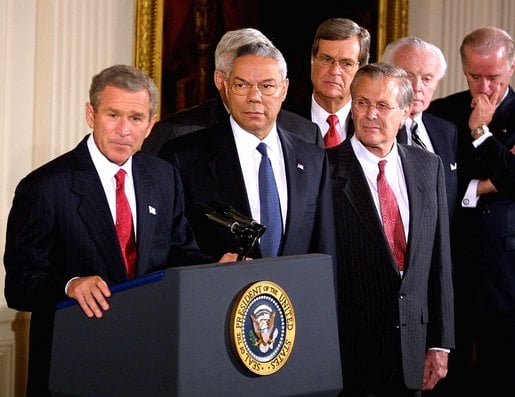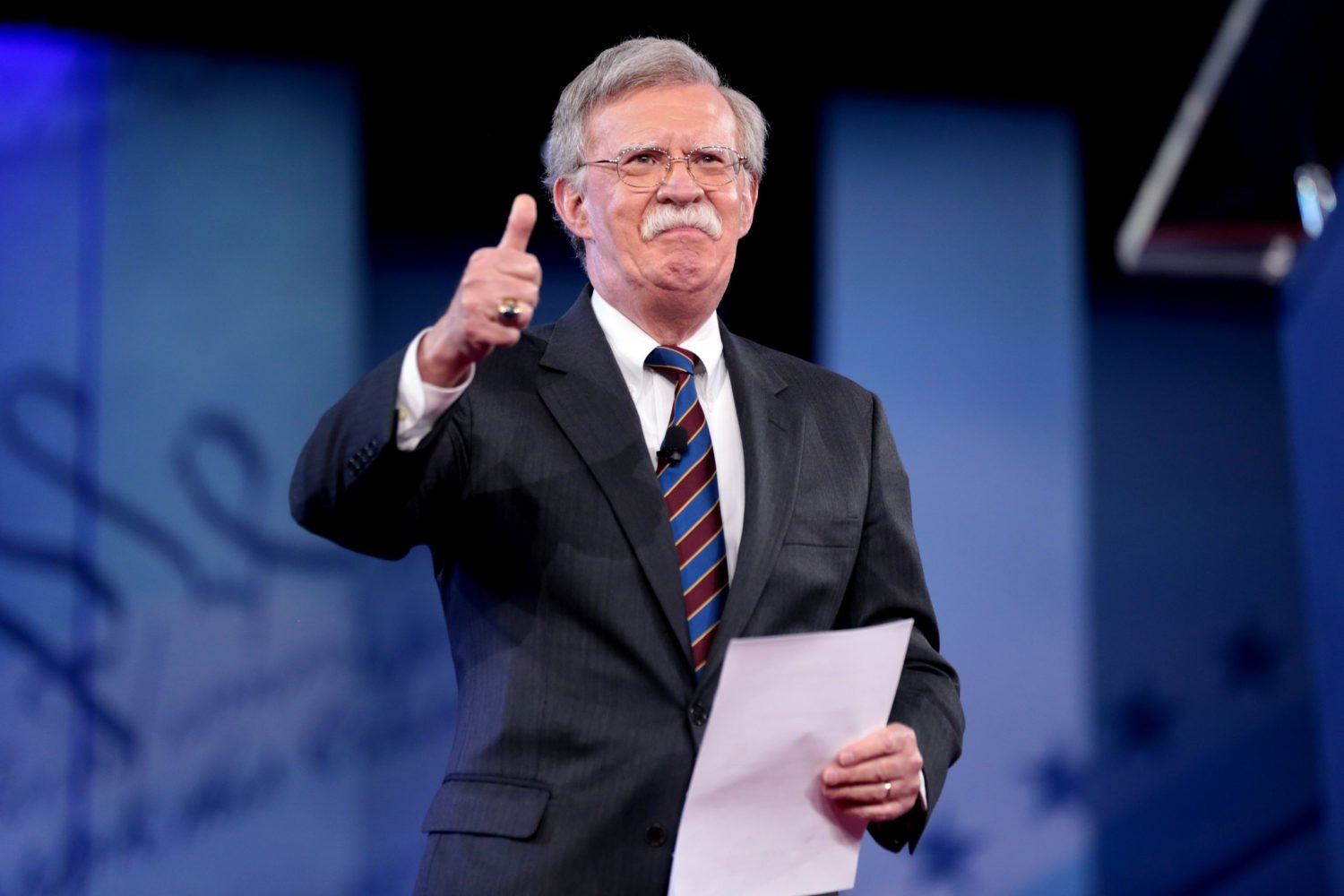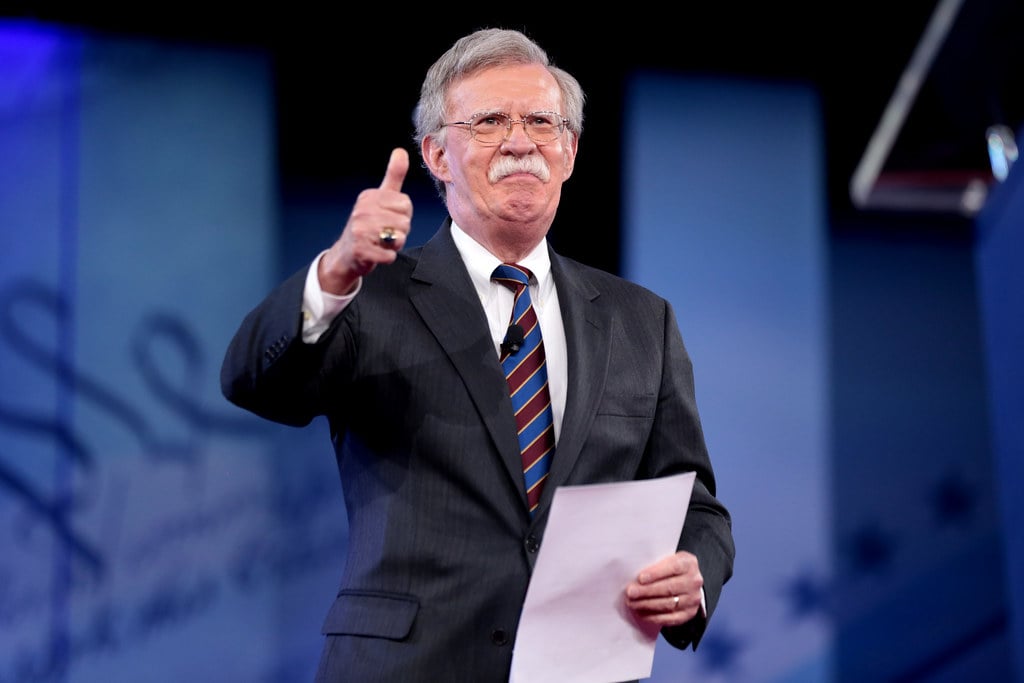Days after an American strike killed Iranian general Qasem Soleimani, the thought leaders of Washington are again deliberating the prospects of a new Middle East war with a seriousness not seen in seventeen years. That was when the capital last underwent a protracted (or not protracted enough) debate about the merits of a land war in Asia.
The points of discussion on Iran may be distinct from the deliberations on Iraq in 2002 and 2003. But so far, they share at least one thing in common—the interlocutors. In the past week, many of the same reporters, policymakers and public intellectuals who set the country on a glide-path to war in Iraq—a group Paul Farhi at the Post calls “The Class of 2003″—are having a moment of media prominence when it comes to discussing the big questions about what to (or not do) next in Iran.
Here are is a primer on members of the Class of 2003 who have already weighed in on the brewing crisis in Iran.
Judith Miller.
With the crisis snowballing, Fox News turned to Judith Miller to discuss the “growing threat” posed by Iran. Miller gained notoriety as the former New York Times reporter who was widely castigated for credulous reporting about WMD’s in the paper of record. She was less famous, however, for her efforts ex post facto to finesse her involvement in the Iraq debate, never really taking accountability, even when pressed directly.
We're really doing this, huh? pic.twitter.com/KR5u2Q8wew
— Justin Baragona (@justinbaragona) January 6, 2020
Steve Hayes.
A man whom Gideon Rose once consecrated as “the most indefatigable proponent of the Iraq-Al Qaeda link outside the [Bush] administration,” Hayes, the longtime editor-in-chief of the Weekly Standard, even wrote a book after the invasion doubling down on the case for the war. Hayes’ new publication, The Dispatch, launches this week, where he’s been purveying a stream of analysis about the conflict.
"Trump often acts rashly, responding to aggressors—both real and perceived—hastily and harshly. But that’s not what happened here. Pro-Iranian militias have been prodding the United States for months, launching rockets at American forces in Iraq" and more.
— Stephen Hayes (@stephenfhayes) January 3, 2020
Ari Fleischer.
As the Bush administration’s press secretary, Fleischer became the face of the White House argument for the invasion of Iraq. Less than a day after the strike on Soleimani, Fleischer appeared as a guest of the Fox News host Jason Chaffetz, wherein Fleischer predicted the killing could prompt celebration inside Iran. (No word yet on whether we’ll be greeted as liberators.)
Ari Fleischer: "I think it is entirely possible that this is going to be a catalyst inside Iran where the people celebrate this killing of Soleimani" pic.twitter.com/UfcTOkvqAw
— Jason S. Campbell (@JasonSCampbell) January 3, 2020
John Bolton.
As a State Department official in 2002, Bolton assured reporters that “Saddam Hussein has hidden weapons of mass destruction” and that “the American role” in the country after the invasion “will be fairly minimal.”
Now known as the erstwhile National Security Advisor in the Trump White House, Bolton has mostly maintained radio silence in the aftermath of the Soleimani killing (a phenomenon likely to do with his entanglement in the Senate’s looming impeachment trial). But he chimed in from afar to air his hopes for what the tensions will lead to:
Congratulations to all involved in eliminating Qassem Soleimani. Long in the making, this was a decisive blow against Iran's malign Quds Force activities worldwide. Hope this is the first step to regime change in Tehran.
— John Bolton (@AmbJohnBolton) January 3, 2020
Thomas Friedman.
The eminent foreign affairs columnist for the Times, Friedman occupies more nuanced territory—not as a cheerleader for Iraq, but among that conflict’s “Balking Hawks,” writers who blanched at the Bush administration’s handling of Iraq, yet felt the war was just in principle. Writing shortly after the invasion had concluded, Friedman averred, “Once the war was over and I saw the mass graves and the true extent of Saddam’s genocidal evil, my view was that Mr. Bush did not need to find any W.M.D.’s to justify the war for me. I still feel that way.”
My latest column: Trump Kills Iran’s Most Overrated Warrior https://t.co/sXCveZfkf4
— Thomas L. Friedman (@tomfriedman) January 5, 2020
Notable absolutions.
While few have publicly addressed their advocacy for the Iraq War, several have. And while not all of those have sought atonement, they have recalibrated their views of American foreign policy. Former Bush speechwriter David Frum, who expressed regret about the outcome of the war, offered “a word of caution from a veteran of the George W. Bush administration” on a war with Iran: “Don’t do it.”
New York Magazine columnist Andrew Sullivan, whose enthusiasm for the war came in for a particularly self-flagellating apology, recently took to task the calls for war with Iran. And Geraldo Rivera—perhaps not the most obvious candidate as the stirring moral tribune of Fox—has come a long way from his “stubbornly optimistic” views about Iraq. Rivera sparred recently on live television with Fox personality Brian Kilmeade, accusing him of having “never met a war you didn’t like,” before adding sarcastically: “The U.S. intelligence has been excellent since 2003 when we invaded Iraq, disrupted the entire region, for no real reason.”



















